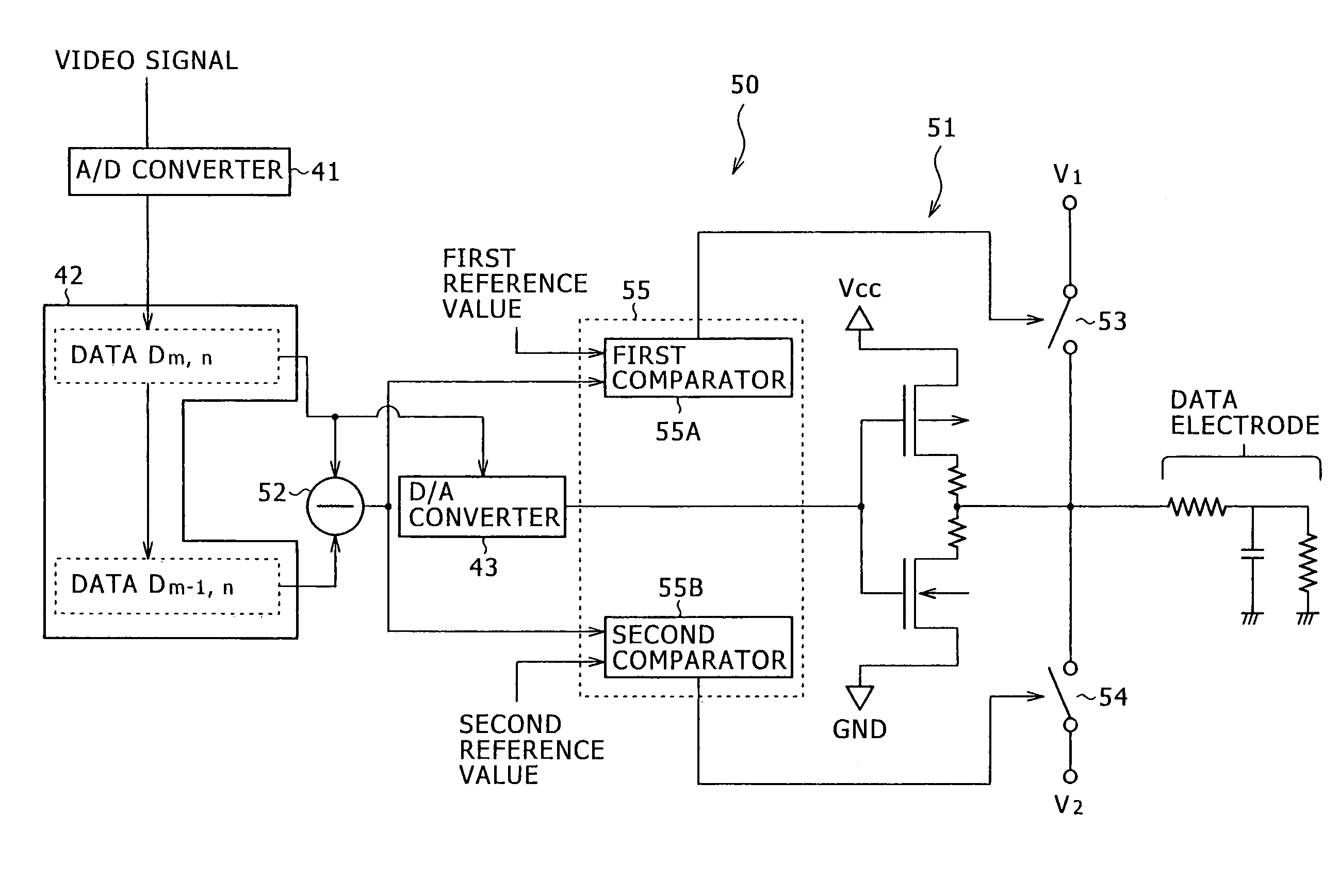Fixed-pixel display device and cold cathode field electron emission display device
a display device and display device technology, applied in the direction of instruments, static indicating devices, etc., can solve the problems of difficult to smoothly display the image, the leading edge and trailing edge waveforms of voltage v/sub>data/sub>to be applied to the data electrodes are still difficult to become steep, and the response for the display of images is reduced. , to achieve the effect of improving the response for the display of images, smooth display of images, and reducing the power consumption of power consumption
- Summary
- Abstract
- Description
- Claims
- Application Information
AI Technical Summary
Benefits of technology
Problems solved by technology
Method used
Image
Examples
example 1
[0145]Example 1 relates to a fixed pixel display device, according to the present invention, and also to a cold cathode field electron emission display device, according to a first embodiment of the present invention.
[0146]A circuit diagram of an actuation driver and the like in Example 1 is shown in FIG. 1, a conceptual diagram of the fixed pixel display device of Example 1 is illustrated FIG. 2, and the state of application of a voltage on a data electrode (cathode electrode) in the fixed pixel display device or cold cathode field electron emission display device (which may hereinafter be collectively called simply “display”) of Example 1 is schematically depicted in FIG. 3. Further, a schematic fragmentary end view of the cold cathode field electron emission display device of Example 1 is shown in FIG. 5, an exploded, schematic fragmentary perspective view of a cathode panel CP and anode panel AP is illustrated in FIG. 6, and as schematic fragmentary plan views, layouts of phosph...
example 2
[0196]Example 2 relates to a fixed pixel display device, according to the present invention, and also to a cold cathode field electron emission display device, according to a second embodiment of the present invention.
[0197]A circuit diagram of an actuation driver and the like in Example 2 and a conceptual diagram of the fixed pixel display device of Example 2 are similar to those shown in FIG. 1 and FIG. 2, respectively, and a schematic fragmentary end view of the cold cathode field electron emission display device of Example 2, an exploded, schematic fragmentary perspective view of a cathode panel CP and anode panel AP, and layouts of phosphor regions and the like are similar to those depicted in FIG. 5, FIG. 6, and FIG. 7 through FIG. 10. The state of application of a voltage to data electrodes (gate electrodes) in the display of Example 2 is schematically illustrated in FIG. 4.
[0198]The cold cathode field electron emission display device of Example 2 is constructed of the cathod...
PUM
 Login to View More
Login to View More Abstract
Description
Claims
Application Information
 Login to View More
Login to View More - R&D
- Intellectual Property
- Life Sciences
- Materials
- Tech Scout
- Unparalleled Data Quality
- Higher Quality Content
- 60% Fewer Hallucinations
Browse by: Latest US Patents, China's latest patents, Technical Efficacy Thesaurus, Application Domain, Technology Topic, Popular Technical Reports.
© 2025 PatSnap. All rights reserved.Legal|Privacy policy|Modern Slavery Act Transparency Statement|Sitemap|About US| Contact US: help@patsnap.com



